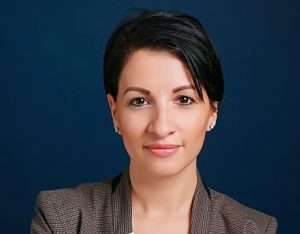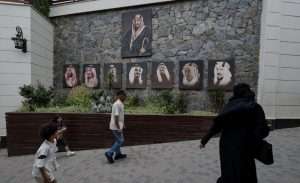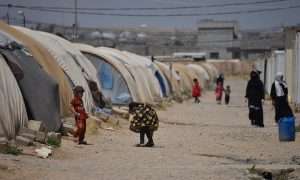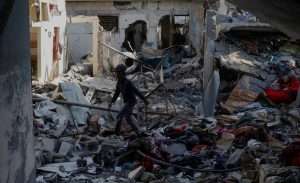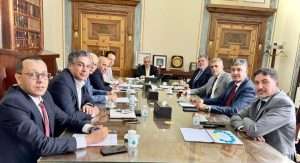Mohamed al-Faki: Is Sudan destined for perpetual war?
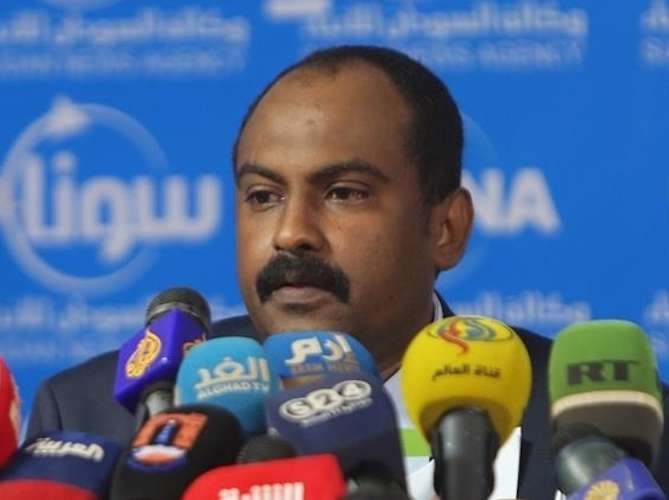
Sudan’s history with war is as old as the nation itself. The first bullet was fired in August 1955, during the period of self-rule and before the official declaration of independence. The circumstances surrounding this rebellion stemmed from military orders to move a unit from South Sudan to the north. However, this military defiance carried within it the voice of the southern political movement, which was skeptical of the northern political elite that had inherited the entire political and bureaucratic apparatus of the state after the departure of colonial rule.
This spark quickly escalated into a raging fire, writing a history of bloody conflict that would later be known as Africa’s longest war. The fighting between the North and the South did not cease until the largest country on the continent split, giving birth to the independent state of South Sudan.

However, the North’s problems did not end there. While the final arrangements for the nation’s division were being made, the seeds of rebellion against the historical center were growing in different parts of northern Sudan – Darfur, the Nuba Mountains, and Blue Nile. These armed movements echoed the same old grievances: marginalization and the central government’s control over power and resources in a vast country where various peoples sought fair participation in governance and equitable resource distribution for the development of their regions.
Successive wars and short-lived peace settlements eroded the state’s institutions, weakening everything from the military to the civil service. Naturally, this had a direct impact on development, as government budgets were directed toward war and its consequences for decades. The ongoing conflicts also led to the expansion and diversification of military and security institutions, forming auxiliary forces based on tribal, ideological, and financial alliances. Arming tribes with combat traditions became normalized and part of the central army’s legacy, which had been exhausted by continuous wars. Moreover, the Islamist regime’s jihadist orientation during its first decade in power produced hundreds of thousands of young fighters who were mobilized to force their fellow citizens – whether Christian or followers of indigenous beliefs – to submit to Islamist rule by the gun.
“The Islamist movement led Sudan into a battlefield it knows better than anyone else. Throughout its history, it was never a mass movement but rather an elitist organization that gained a foothold among university students, professionals, and security personnel.”
These wars created an extremely complex reality. In addition to the formal army and its auxiliary forces, known as the Rapid Support Forces (RSF), there were armed movements that had been fighting the military since 2003. From this battlefield emerged the RSF – a fast-moving force initially composed of Arab militias in Darfur, which later expanded its recruitment across Sudan, growing into a parallel army lacking only an air force. Amid this highly complex historical moment and armed landscape, the Sudanese civilian revolution triumphed after sustained mass uprisings that claimed precious lives, overthrowing the Islamist regime that had ruled the country for three decades through military force. Recognizing the dangers that this militarized environment posed to national stability, the revolution prioritized the creation of a professional, unified army that would exclusively control the country’s weapons, as is the norm in any sovereign state.
The Islamists faced this vital demand from multiple platforms. Their primary narrative was that revolutionary forces sought to dismantle and take over the army. They pushed this argument further, outright rejecting any integration of the various armed factions – including the army, RSF, and rebel groups – into a single force. To achieve their goal, they leveraged the media, their cadres embedded within these institutions, and their deep knowledge of the military’s internal structure.
Their rejection was driven by their belief that their presence within the security sector was their key advantage over civilian forces and mass movements – a long-term investment that began under President Nimeiri in the late 1970s, when Islamists were first introduced into the armed forces, police, and security agencies. This strategy became systematic after their full takeover of power in 1989. Beyond their presence within the state’s official forces, the Islamist movement also commanded dozens of armed organizations, such as the Popular Defense Forces, Popular Security, and student militias. This meant that any attempt by the state to monopolize weapons would strip the Islamists of their most crucial tool for reclaiming power whenever they chose.

The Islamist movement led Sudan into a battlefield it knows better than anyone else. Throughout its history, it was never a mass movement but rather an elitist organization that gained a foothold among university students, professionals, and security personnel. From these circles, it infiltrated the civil service and military, eventually orchestrating the 1989 coup, which the Sudanese people resisted from day one. This resistance culminated in the triumph of civilian forces in 2019, leading to a transitional government that lasted only two years before being overthrown in the October 2021 coup. However, the Islamists were met with fierce civilian resistance that derailed their coup from the very start, forcing the coup leaders into political negotiations with opposition forces. These talks resulted in a political agreement that mirrored the demands of the civilian movement for three decades – chief among them, the creation of a professional, unified army and the dismantling of the Islamist regime’s control over state institutions.
READ: Can politics resolve Sudan’s conflict?
At that moment, the Islamist movement chose to return to the battlefield it knows best, placing its eternal bet on the gun. This led to the outbreak of the April 15 war, whose bloody chapters are still unfolding.
The views expressed in this article belong to the author and do not necessarily reflect the editorial policy of Maghrebi.org. Mohamed al-Faki Suleiman is a Sudanese politician who was a Former, and youngest, Member of the Transitional Sovereignty Council of Sudan.
If you wish to pitch an opinion piece please send your article to alisa.butterwick@maghrebi.org.
Want to chase the pulse of North Africa?
Subscribe to receive our FREE weekly PDF magazine




